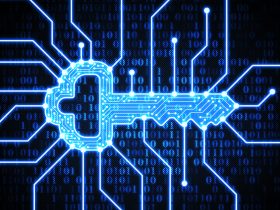Whether you’re shopping online, logging into your social media accounts, or banking — all your user accounts need a password. To make your sensitive and personal data safer from others, it’s best to generate unique and strong passwords. But, with so many user accounts, it can be really difficult to think of strong passwords and remember them. Read on to learn how a password generator can help you out, what one is, and how one works. You’ll also discover how Avira Password Manager can help you create super-strong passwords and securely manage them and other personal info.
What’s a strong password?
A strong password is a key step in protecting your log in details from others who’d like to get their hands on them. Doing so makes it challenging for any hacker to then access your user accounts. But how do you create a secure password? The best way is to consider the following principles:
- Make it unique: Use a unique password for each user account. If you always use the same password, it makes it easier for hackers to gain access to all of your accounts should a single account get hacked. It’s for this very reason that multiple accounts are less likely to be hacked if you generate a unique password for each.
- Make it random: A strong password combines a random mix of upper- and lower-case letters with numbers and special characters. Never use words or names to prevent your password from revealing any personal information.
- Length: If you want to generate a secure password, its length is critical. Ideally, a password should be 14 or more characters long. That’s because the longer it is, the harder it is for others to crack your password. For example, experienced hackers only need around 40 minutes to decrypt an 8-character password. With twice the number of characters, they’d need several decades.
How often should I change my password?
Many experts recommend you change your passwords regularly. But if there’s a cyberattack on a website, it doesn’t matter when you last changed your password — what matters is how secure it is. So, if you suspect that your password has been cracked, you should change it immediately to avoid further damage.
The most common password mistakes
Creating a strong password is complicated. People often use weak, easy-to-guess passwords that consist of a combination of numbers or simple words. These rarely can withstand a brute force attack. In addition, many people use the same passwords for multiple accounts. Other common mistakes including using any of the following:
- Personal data: Even though passwords that contain names, dates of birth, or phone numbers are easier to remember, they still pose a security risk. If your personal data has been exposed as a result of a data leak, it’ll be easier for unscrupulous people to gain access to your accounts. Our top tip in the event of a data hack: Change all your passwords.
- Default passwords: Often devices or services come with default passwords. You should change these after you first log in to prevent unauthorized access or distribution on the dark web.
- Storage: Sensitive passwords are often stored in unprotected places — for example in a text file. If cybercriminals have gained access to your device, they can also access this file and then break into your user accounts.
One practical way to get around this issue is to use a password generator. You can then quickly generate strong passwords for all your user accounts. We’ll now look into how a password generator works.
What’s a password generator and how does one work?
A password generator is a tool that helps you create more secure passwords. Many generators allow you to set which and how many characters the new password should consist of. No matter which password generator you use, they all work in a similar way.
Password generators use algorithms to generate random passwords from letters, numbers, and special characters. Their goal is to create the most secure and uncrackable password possible, helping to increase your online security. The same is true of Avira Browser Safety. This browser extension makes your surfing safer as it warns you about infected websites and ads.
Why should I use a password generator?
It’s worth using a password generator to generate a new password. The algorithms generate highly complex passwords automatically from a combination of alphanumeric and special characters. They’re also based on mathematical chance, making it harder for cybercriminals to crack them.
By contrast, people usually find it difficult to create a strong, random password. They tend to use names, numbers, or common characters. Since computers can test a large number of passwords within a few seconds, they usually guess passwords that people have created very quickly.
What makes a good password generator?
Good password generators use something called cryptographic entropy. This means that the passwords are encrypted and are only created locally on your computer, so no information is transmitted online. You can also generate passwords both online and offline, enabling you to then also password protect sensitive documents.
Can password generators be hacked?
Password generators from unknown sources pose a security risk. That’s because hackers can decrypt the websites or inject compromised information, allowing cybercriminals to access your personal information. As such, always use a password generator from a reputable provider.
When you use such a password generator, it only creates the password locally on your computer — the password is never transmitted over the internet or stored online. With a trustworthy provider, the risk of the password generator and therefore your passwords being hacked is extremely low.
How can I protect and store my passwords securely?
To be safer online, you should create a unique password for each user account. However, as most users have a crazy number of accounts, it can be difficult to remember all those passwords. As tempting as it may be, though, never save them in a plain, unprotected text file. Here are more secure ways to save your auto-generated passwords:
- USB stick: A classic way is to store passwords on a biometric USB stick with a fingerprint reader. However, many devices these days no longer have USB ports, making this option obsolete.
- Password tool: It’s easier and more commonplace to use a password manager. This tool saves your complex passwords, making them impossible for hackers to crack. To access your passwords, you only need one master password to unlock the tool.
With Avira Password Manager, you can generate more secure and unique passwords as well as manage them — plus, only you can access it. The tool also allows you to log in to your online accounts automatically. All you need is a master password. For even greater security, Avira offers additional security precautions, including support for touch or face ID as well as two-factor authentication.














